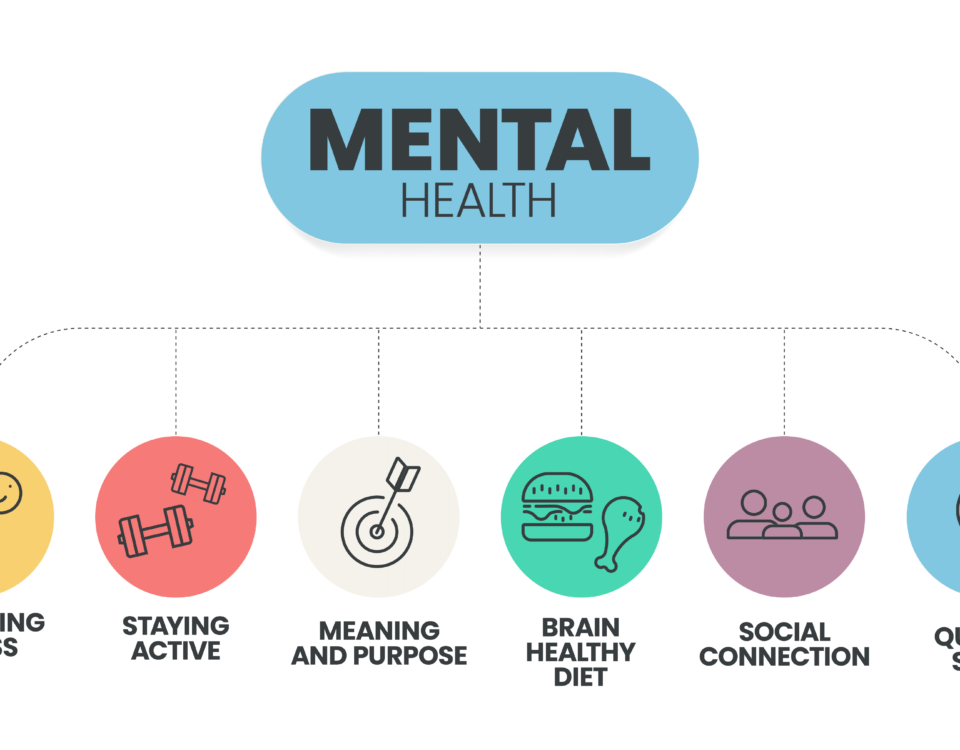For many people seeking treatment for substance use, mental health issues, or addiction, the idea of taking time off work can be a significant concern. Whether it's balancing a demanding job with personal health needs or worrying about potential job loss, getting treatment while employed can feel like a daunting challenge. However, it's important to understand that it is possible to prioritize your health while maintaining your career. In this article, we’ll explore how to navigate treatment while employed, addressing key considerations such as types of treatment, workplace rights, and legal protections.
Understanding Your Treatment Options
There are various treatment options available for those seeking help with mental health or addiction issues, and many of them can be customized to fit into a work schedule. Some options include:
- Outpatient Treatment Programs: These programs allow individuals to receive treatment on a part-time basis, making it easier to attend sessions around work hours. Outpatient treatment might involve therapy, counseling, or group sessions, which can be scheduled in the evenings or on weekends.
- Telehealth Services: With advancements in technology, many treatment providers now offer virtual counseling and therapy sessions. This individuals to attend appointments from the comfort of their home or office, reducing time away from work.
- Partial Hospitalization Programs (PHP): PHP provides a middle ground for individuals who need more intensive care but can still manage part-time work in the evenings. These programs generally require about 40 hours per week, with treatment sessions taking place during the day and the opportunity to return home each evening.
- Employee Assistance Programs (EAPs): Many employers offer EAPs as a benefit to employees. These programs provide confidential counseling and support for mental health, addiction, and other personal issues. EAPs can be a helpful starting point for those navigating treatment while employed.
Legal Protections: Your Rights at Work
One of the most important considerations when seeking treatment is understanding your rights as an employee. Both federal and state laws provide legal protections for individuals seeking treatment, particularly when it comes to addiction and mental health.
- The Family and Medical Leave Act (FMLA): Under the FMLA, eligible employees have the right to take up to 12 weeks of unpaid leave each year to deal with serious medical conditions, including mental health issues or substance use disorders. Importantly, FMLA leave is job-protected, meaning you cannot be fired for taking time off to get treatment. However, FMLA applies to employees who meet certain eligibility criteria, such as working for a company with 50 or more employees and having been employed for at least 12 months.
- Americans with Disabilities Act (ADA): The ADA prohibits discrimination based on disabilities, including mental health conditions and addiction (when it is treated as a medical condition). If you are seeking treatment for a substance use disorder or mental health issue, your employer may be required to provide reasonable accommodations. This could include adjusting your work schedule to attend treatment or making changes to your duties if necessary.
- State-Specific Laws: In addition to federal protections, many states have their own laws that provide additional safeguards for employees seeking treatment. These laws may offer broader protections or extend coverage to more workers than federal law does. It’s important to check the specific laws in your state to fully understand your rights.
- Short-Term Disability Benefits: In some states, employees may be eligible for short-term disability (STD) benefits, which provide partial wage replacement if you are unable to work due to a medical condition, including mental health or substance use disorders. Programs vary by state and employer, but common features include:
- Eligibility: To qualify for short-term disability, employees often need to have worked for a specified period and provide medical documentation supporting their condition.
- Coverage Duration: Depending on the state or employer policy, benefits may last anywhere from a few weeks to several months.
- State-Sponsored Programs: States like California, New York, New Jersey, Rhode Island, and Hawaii have mandated short-term disability programs, offering additional resources for employees in need.
If you are in a state without mandated short-term disability, your employer may still offer voluntary plans, or you can purchase private disability insurance for added coverage. Understanding your eligibility and application process for these benefits can provide critical financial support while seeking treatment.
Addressing Common Concerns and Stigma
Many individuals feel hesitant to seek treatment while employed due to concerns about stigma or judgment in the workplace. The stigma surrounding mental health and addiction can create additional barriers to care. Here’s how to address those concerns:
- Stigma in the Workplace: Unfortunately, stigma surrounding mental health and substance use disorders still exists in many work environments. Employees may fear negative judgment or discrimination from coworkers or supervisors. It’s important to be prepared for these realities but also know that workplace stigma is something that can be addressed. Seeking help is a courageous step, and normalizing conversations around mental health is key to fostering supportive work environments. Rather than dwelling on the challenges that led to seeking treatment, emphasize how the treatment has empowered you to enhance your work performance and overall well-being.
- Handling Conversations with Confidence: If you choose to disclose your treatment needs, it's essential to keep your disclosure professional and focused on your health. You don’t have to share specific details about your condition but can simply mention that you are seeking care for a medical issue.
- Encouraging a Supportive Culture: Employers can foster a supportive environment by encouraging open communication about mental health and addiction issues. When workplaces are inclusive and proactive in promoting employee wellness, they reduce the stigma and support healthier, more productive employees.
Financial Assistance and Insurance Considerations
The financial aspect of treatment is another concern for many employees. Fortunately, several options can help alleviate the costs of treatment:
- Health Insurance Coverage: Under the Affordable Care Act, most insurance plans must cover mental health and substance use disorder treatments. It’s essential to check with your insurance provider to understand what treatments are covered, such as outpatient therapy, inpatient programs, and medications.
- Flexible Spending Accounts (FSAs) and Health Savings Accounts (HSAs): These accounts allow you to use pre-tax dollars for medical expenses, including mental health and addiction treatment. These can help reduce out-of-pocket costs.
- Workplace Benefits: Many employers offer health-related benefits like wellness programs or EAPs that can provide support for treatment. Be sure to review your benefits package to see what resources are available to you.
Maintaining Productivity at Work During Treatment
For employees who are concerned about maintaining job performance during treatment, there are strategies to balance work and recovery effectively:
- Managing Your Energy: While undergoing treatment, it’s essential to prioritize your physical and mental energy. Recognize that recovery is demanding and be mindful of your workload. Break tasks into smaller, manageable chunks to avoid burnout.
- Communication with Supervisors: Keep an open line of communication with your supervisor or HR to discuss any adjustments needed, such as flexible hours or a temporary reduction in workload.
- Setting Boundaries: Setting clear boundaries between work and recovery is crucial for avoiding stress and maintaining progress in both areas. Don’t hesitate to say “no” to additional tasks if it feels overwhelming.
- Leverage Workplace Resources: Utilize Employee Assistance Programs (EAPs), wellness initiatives, or any workplace-provided counseling services. These resources are designed to support employees balancing work and personal challenges, including recovery, and can provide valuable tools and accommodations.
By implementing these strategies, employees can maintain productivity while prioritizing their health and recovery journey.
Support Networks and Therapy Options
Seeking support outside of work can greatly enhance your recovery journey. Here’s how support systems can help:
- Support Groups: Participating in support groups, whether in-person or online, can provide a sense of community and understanding. These groups are especially beneficial for addiction recovery, where shared experiences can foster healing and motivation.
- Therapist and Counselor Support: Regular therapy or counseling sessions provide emotional support and equip you with coping strategies to manage work and personal challenges during treatment.
The Importance of Long-Term Recovery and Aftercare
Treatment doesn’t end after completing a program. Long-term recovery requires ongoing care and maintenance:
- Aftercare Programs: Many recovery programs offer aftercare services to help individuals adjust to life after formal treatment. This may include follow-up therapy, outpatient programs, or regular check-ins with a counselor.
- Ongoing Self-Care: Long-term recovery requires a continued commitment to self-care. Prioritize activities like exercise, healthy eating, and mindfulness to support both physical and mental well-being during your recovery journey.
- Participation in Support Groups: Engaging with support groups, such as 12-step programs like Alcoholics Anonymous (AA) or Narcotics Anonymous (NA), can provide a sense of community and shared experience. These groups offer peer support, accountability, and a structured approach to maintaining sobriety. Regular attendance can reinforce commitment to recovery and provide ongoing encouragement.
Integrating these elements into your recovery plan can enhance resilience and reduce the risk of relapse, supporting sustained sobriety and personal growth.
Tips for Employers to Support Employees Seeking Treatment
Employers play a key role in supporting employees who are navigating treatment:
- HR and Manager Training: Train HR professionals and managers to respond with sensitivity and understanding when employees disclose a need for treatment. Ensuring confidentiality and a supportive approach will create a safe space for employees to seek help.
- Workplace Wellness Programs: Employers can offer wellness programs that support mental health and addiction recovery. This can normalize treatment-seeking behavior and help employees feel more supported at work.
- Flexible Policies: Implement policies that accommodate employees in recovery, such as flexible scheduling, remote work options, or leave for treatment and support group participation.
- Regular Communication: Encourage open dialogue about mental health and recovery through workshops, newsletters, or initiatives. Highlighting resources and success stories can help reduce stigma and promote understanding.
By fostering a culture of support, employers can help employees on their recovery journey while contributing to a healthier, more productive workplace.
Encouragement and Reassurance
Taking the step to seek treatment while employed is a courageous decision. Prioritizing your health will ultimately lead to improved productivity, better work-life balance, and a healthier, more fulfilling career. Remember, you’re not alone—there are resources available to support you at every step.
Getting into treatment is easy with our free insurance verification
"*" indicates required fields
Addiction Treatment Near Me
Seeking treatment while maintaining employment is not only possible, but it can also be incredibly empowering. By understanding your treatment options, knowing your rights, and utilizing available resources, you can prioritize your health without sacrificing your career. Remember, your journey to recovery is important.
At Banyan Treatment Centers, we understand the challenges of balancing treatment with a busy lifestyle. That’s why we offer a range of outpatient programs, telehealth services, and comprehensive addiction treatment options that cater to your needs. Our experienced staff provides personalized care in a supportive and confidential environment, ensuring that we can work with you and your daily responsibilities with your treatment. Whether you’re dealing with substance abuse, mental health issues, or both, we’re here to help you take the first step toward recovery.
If you’re ready to seek help, Banyan Treatment Centers is here for you. Don’t let the fear of treatment affecting your employment hold you back—our team is committed to supporting your recovery journey every step of the way.
Reach out today to learn more about our programs and how we can assist you in getting the help you deserve while managing your career.
Sources:
- The Family and Medical Leave Act (FMLA) - U.S. Department of Labor:
- Americans with Disabilities Act (ADA) - U.S. Equal Employment Opportunity Commission:
- National Institute on Drug Abuse (NIDA):









